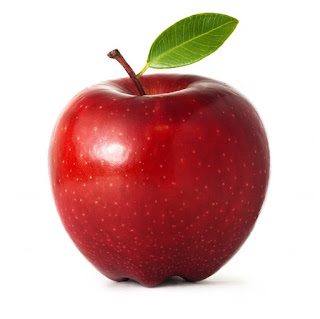Apple is famous as "An apple a day keeps the doctor away" is an old proverb that most of us are familiar with, but what makes this fruit so special? As one of the most cultivated and consumed fruits in the world, apples are continuously being praised as a "miracle food". Apple is one of the healthiest food.
Apples are extremely rich in important antioxidants, flavonoids, and dietary fiber. The phytonutrients and antioxidants in apples may help reduce the RISK of developing cancer, hypertension, diabetes, and heart disease.
Nutritional information for apples
Apples deserve to be called "nutritional powerhouses". Apples contain almost no fat, sodium or cholesterol. They contain the following important nutrients:
Vitamin C
- a powerful natural antioxidant capable of blocking some of the damage caused by free radicals, as well as boosting the body's resistance against infectious AGENTS, according to the University of Maryland Medical Center.B-complex vitamins (riboflavin, thiamin, and vitamin B-6)
these vitamins are key in maintaining red blood cells and the nervous system in good health.Dietary fiber -
the British National Health Service says that a diet high in fiber can help prevent the development of certain diseases and may help prevent the amount of bad cholesterol in your blood from rising.Phytonutrients -
apples are rich in polyphenolic compounds". These phytonutrients help protect the body from the detrimental effects of free radicals.
Minerals such as calcium, potassium, and phosphorus.
Apples, with skin (edible parts) nutritional value per 100 grams
Energy - 52 kcal
|
Carbohydrates - 13.81 g
|
Fat - 0.17 g
|
Protein - 0.26 g
|
Water - 85.56 g
|
Sodium - 1 mg
|
Beta-carotene - 27 μg
|
Lutein and zeaxanthin - 29 μg
|
Thiamin (vitamin B1) - 0.017 mg
|
Vitamin A equiv - 3 μg
|
Riboflavin (vitamin B2) - 0.026 mg
|
Niacin (vitamin B3) - 0.091 mg
|
Pantothenic acid (vitamin B5) - 0.061 mg
|
Vitamin B6 - 0.041 mg
|
Folate (vitamin B9) - 3 μg
|
Vitamin C - 4.6 mg
|
Vitamin E - 0.18 mg
|
Vitamin K - 2.2 μg
|
Calcium - 6 mg
|
Iron - 0.12 mg
|
Magnesium - 5 mg
|
Manganese - 0.035 mg
|
Phosphorus - 11 mg
|
Potassium - 107 mg
|
Health benefits of apples
A collection of research studies suggests that apples may well be one of the best foods people should add to their diet.
Improve neurological health
Apples are good for neurological health. The fruit contains an antioxidant called "quercetin" which reduces cellular death caused by oxidation and inflammation of neurons, according to research conducted by G. Bureau and M. Martinoli at the University of Quebec.
Prevent dementia
Researchers at Cornell University conducted a study, published in the Journal of Food Science, which found evidence to suggest that apples may help "protect neuron cells against oxidative stress-induced neurotoxicity", which could reduce the RISK of developing neurodegenerative disorders such as Alzheimer's disease.
Reduce your risk of stroke
A study involving 9,208 men and women showed that those who ate the most apples over a 28-year period had the lowest RISK for stroke. The researchers concluded, "the results suggest that the intake of apples is related to a decreased risk of thrombotic stroke."
Lower levels of bad cholesterol
A group of researchers at The Florida State University stated that apples really are a "miracle fruit". They found that older women who ate apples every day had 23% less bad cholesterol (LDL) and 4% more good cholesterol (HDL) after just six months.
Reduce the risk of diabetes
Apples could also help lower your RISK of diabetes. A study involving 187,382 people found that people who ate three servings per week of apples, grapes, raisins, blueberries or pears had a 7% lower RISK of developing type 2 diabetes compared to those who did not.
Prevent breast cancer
There is growing evidence suggesting that an apple a day may help prevent breast cancer, according to a series of studies conducted by prominent Cornell researcher Rui Hai Liu. Liu said her research adds to "the growing evidence that increased consumption of fruits and vegetables, including apples, would provide consumers with more phenolics, which are proving to have important health benefits. I would encourage consumers to eat more and a wide variety of fruits and vegetables daily."
Helps to control your weight
Apples satisfy hunger for few calories so it’s not surprising that they can be part of a healthy diet that promotes weight loss. And in a recent study, dried apples also helped participants lose some weight. Women who ate a cup of dried apples daily for a year lost some weight and lowered their cholesterol and heart disease markers. Florida State University researchers think apples’ antioxidants and pectin (a type of fiber) are responsible for the benefits—and think that fresh apples would be even more effective.
Detoxify your liver
We’re constantly consuming toxins, whether it is from drinks or food, and your liver is responsible for clearing these toxins out of your body. Many doctors are skeptical of fad detox diets, saying they have the potential to do more harm than good. Luckily, one of the best—and easiest—things you can eat to help detoxify your liver is fruits—like apples.
Boost your immune system
Red apples contain an antioxidant called quercetin. Recent studies have found that quercetin can help boost and fortify your immune system, especially when you're stressed out.
Make heart healthy
An extensive body of research has linked high soluble fiber intake with a slower buildup of cholesterol-rich plaque in your arteries. The phenolic compound found in apple skins also prevents the cholesterol that gets into your system from solidifying on your artery walls. When plaque builds inside your arteries, it reduces blood flow to your heart, leading to coronary artery disease.
Apples - three frequently asked questions
Should I peel the apple before eat? - Most of the fiber and antioxidants are in the peel, says Dianne Hyson, Ph.D., R.D., a research dietitian at UC Davis in the Department of Internal Medicine.
What about pesticides on the peel? - Dr. Hyson says "Despite public misperceptions, laboratories have consistently found very low levels - if any - of pesticide residues on the skin of apples."
I have type 2 diabetes, can I eat apples? - According to the American Diabetes Association, "Apples are a nutritious food and you can still eat them even if you have diabetes." The ASSOCIATION reminds people to eat the peel and advises on buying small apples.









No comments:
Post a Comment